The Rich Tradition and Health Benefits of Turkish Yoghurt
Yoghurt is a beloved culinary staple worldwide, revered for its creamy texture, tangy flavor, and numerous health benefits. While it has roots in many cultures, Turkish yoghurt stands out for its unique characteristics and rich cultural significance. In Turkey, yoghurt has been cherished for centuries, not only as a versatile ingredient in the country's diverse cuisine but also for its remarkable health properties. In this blog post, we delve into the intriguing world of Turkish yoghurt, exploring its origins, traditional production methods, distinctive qualities, and the manifold benefits it offers for both the palate and overall well-being.
A Brief History of Turkish Yoghurt:
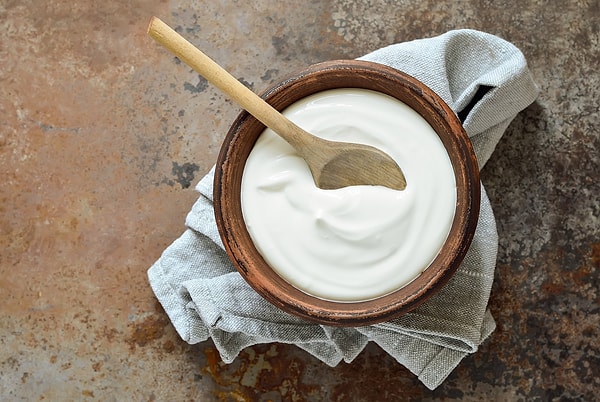
The history of yoghurt in Turkey can be traced back thousands of years. It is believed that the Turks discovered yoghurt accidentally when milk carried in animal skin bags fermented due to the bacteria naturally present in the animal skins. Recognizing its unique taste and health benefits, Turkish nomads started intentionally producing yoghurt. Over time, it became an integral part of Turkish cuisine and culture, with numerous regional variations and preparation techniques.
Traditional Production Techniques:

Traditional Turkish yoghurt is made from cow's, sheep's, or goat's milk and follows a natural fermentation process. The milk is heated and then cooled to a specific temperature to allow the beneficial bacteria, primarily Lactobacillus bulgaricus and Streptococcus thermophilus, to thrive. These bacteria convert lactose, the natural sugar in milk, into lactic acid, resulting in the characteristic tangy taste and creamy texture of yoghurt.
Distinctive Characteristics of Turkish Yoghurt:
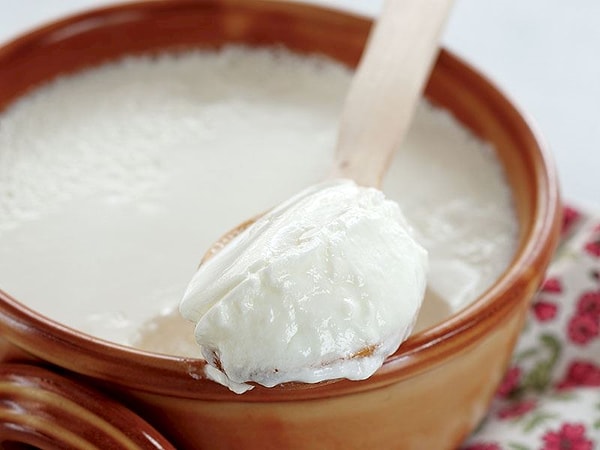
Turkish yoghurt boasts several unique qualities that set it apart from other varieties. One notable aspect is its exceptionally creamy texture, owing to the higher fat content in comparison to many commercial yoghurts. The rich, velvety consistency lends itself well to various culinary applications, making it a versatile ingredient in both sweet and savory dishes.
Moreover, Turkish yoghurt is known for its distinct tangy flavor. The fermentation process and the specific bacterial strains used contribute to the pronounced tartness, adding depth and complexity to any dish it is incorporated into. This delightful balance of creaminess and tang has made Turkish yoghurt a preferred choice not only in traditional Turkish cuisine but also in global culinary circles.
Culinary Delights: Turkish Yoghurt in Traditional Dishes:
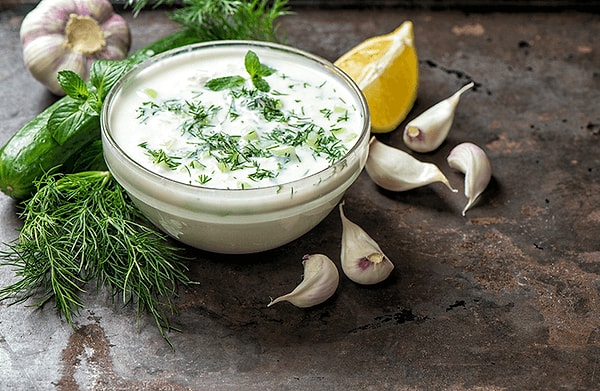
Turkish yoghurt holds a cherished place in the Turkish culinary repertoire, where it is utilized in a wide array of traditional dishes. From appetizers like Cacık (a refreshing yogurt and cucumber dip) and Haydari (a creamy yogurt dip with herbs and garlic) to main courses such as İskender kebab (marinated meat served with bread and yogurt), yoghurt plays a vital role in enhancing flavors, adding creaminess, and balancing spiciness.
In addition to its savory applications, Turkish yoghurt is a star ingredient in delectable sweet treats. Güllaç, a beloved Turkish dessert, features layers of thin pastry sheets soaked in rosewater and filled with a creamy mixture of yoghurt and ground nuts. Similarly, Aşure, a traditional Turkish pudding, combines grains, dried fruits, and nuts with a dollop of yoghurt for a delightful contrast of textures and flavors.
Health Benefits of Turkish Yoghurt:
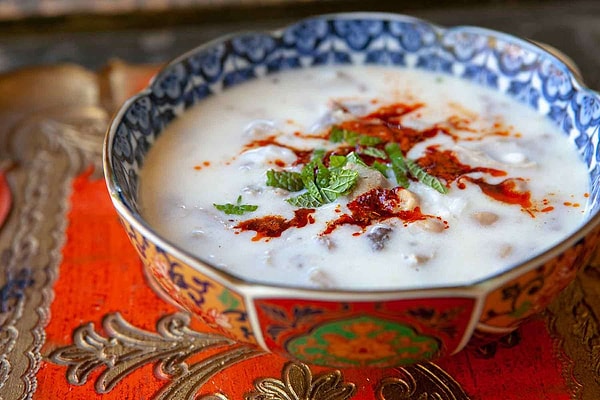
Beyond its culinary merits, Turkish yoghurt offers a plethora of health benefits. Packed with essential nutrients, it is an excellent source of protein, calcium, vitamin B12, and probiotics. The live bacteria cultures in yoghurt contribute to a healthy gut microbiome, aiding digestion, promoting immune function, and improving overall gastrointestinal health.
Moreover, Turkish yoghurt is often well-tolerated by those with lactose intolerance due to the fermentation process, which converts lactose into lactic acid. The presence of probiotics in yoghurt can also support weight management, reduce the risk of chronic diseases, and enhance mental health.
Exploring the Global Popularity of Turkish Yoghurt:
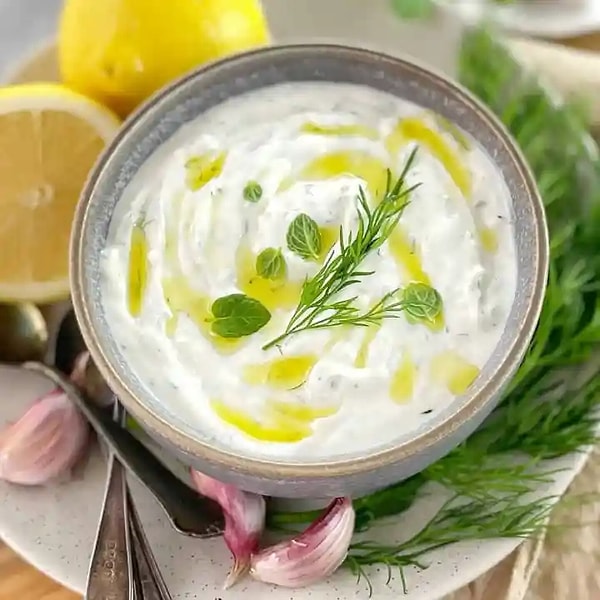
The global popularity of Turkish yoghurt has surged in recent years, as people around the world have come to appreciate its distinctive qualities and health benefits. Turkish food exports, including yoghurt, have seen substantial growth, with consumers drawn to the authenticity, quality, and traditional production methods employed in Turkey.
In response to the growing demand, Turkish yoghurt has become more readily available in international markets, showcasing its versatility in both traditional and fusion dishes. Chefs and food enthusiasts worldwide have embraced Turkish yoghurt for its ability to add depth, creaminess, and a delightful tang to a myriad of recipes.
A Culinary Gem:

Turkish yoghurt represents a fascinating fusion of ancient traditions, cultural heritage, and remarkable health benefits. Its creamy texture, tangy flavor, and versatility have made it a cherished ingredient in Turkish cuisine and an increasingly sought-after delicacy worldwide. Whether enjoyed on its own, used in traditional dishes, or incorporated into contemporary recipes, Turkish yoghurt remains a culinary gem that celebrates the marriage of tradition, flavor, and well-being. So next time you savor a spoonful of Turkish yoghurt, relish not only its taste but also the rich heritage and nourishing qualities it embodies.

Send Comment